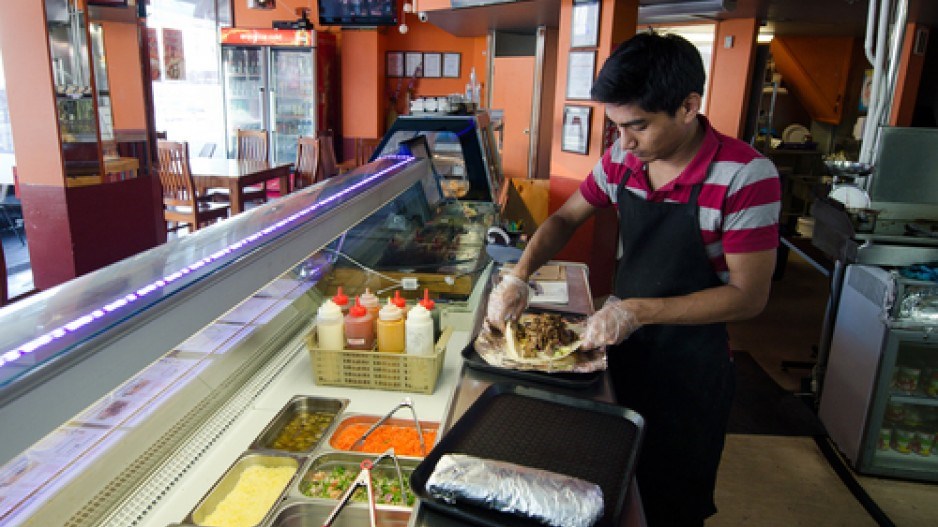British Columbia workers who currently make the minimum wage will be getting a very modest 20-cent raise in six months.
On March 12 the B.C. government announced it would raise the minimum wage from $10.25 an hour to $10.45 in September, and from this point on will index the minimum wage to inflation every year.
For someone working 40 hours a week, the 20-cent increase equals $8 more a week or $416 more per year.
The serving wage, currently set at $9 an hour, will rise to $9.20, and agricultural piecework rates will go up by the same percentage.
Jobs Minister Shirley Bond said the new system will provide stability for employers. Employers will get advance notice of what the September rates will be in March.
The increase is part of a suite of recent measures to help people living in poverty, Bond said, including ending a much-criticized claw-back of child support payments for parents on welfare and increased childcare benefits for parents on welfare who want to re-enter the workforce.
The last time minimum was increased was in 2012, when it went up to $10.25 an hour from $10. Between 2001 and 2011 the minimum wage was frozen at $8 an hour. For the past decade, B.C. has had either the highest or one of the highest rates of child poverty, as measured by poverty advocacy organization First Call.
Bond reiterated that B.C. will not raise the minimum wage to $15 an hour, something the BC Federation of Labour has been campaigning for as a way to address poverty.
For the September 2015 increase, Bond said her ministry had looked at the consumer price index over the past three years to determine how much the increase should be.
“It reflects the changes that would have take place if we had been indexed at that time,” Bond said.
Bond also noted that up until now, B.C. has been the only province to take an “ad-hoc” approach to setting the minimum wage rate.
Indexing the minimum wage to inflation is a positive step, said David Green, an economist at the University of British Columbia.
But he called the 20 cent increase “laughably low.”
“Relative to where you would think you would want it if your concern is really inequality and poverty, then it’s too low,” he said.
“Inequality as a whole and in B.C. in particular has gone up dramatically in the past three decades and little increments in the minimum wage … have obviously not done anything to prevent that kind of inequality increase or the poverty levels that BC leads in.”
Seattle and San Francisco have recently put in place plans to raise the minimum wage to $15 an hour over the next several years, and Los Angeles is considering whether to put a similar increase in place.
In B.C., cities do not have the power to raise the minimum wage, but the province could put in place a regional increase, similar to what is being considered for the regional sales tax to support transit investment, Green said. A municipal increase could be used to address higher housing costs in cities like Vancouver.
The BC Chamber of Commerce applauded the government’s move, saying it will provide certainty for businesses in the province
A small number of B.C. workers actually work for the minimum wage. Around 110,000 people in B.C. currently earn minimum wage and about 50% live at home with their parents, according to Bond. The average hourly wage in B.C. is just under $25 an hour for adults and slightly under $15 an hour for young people.
While few employers in B.C. pay the minimum wage, the rate is important for businesses because it is used to calculate other wages and an increase in the minimum wage can lead to pressure to increase wages overall, Winter said.
“It has a ratcheting up effect, no matter who is using it,” he said.
@jenstden




